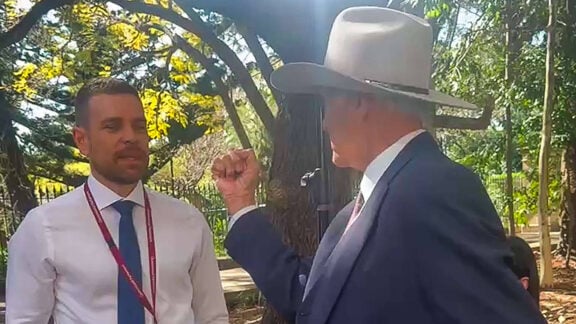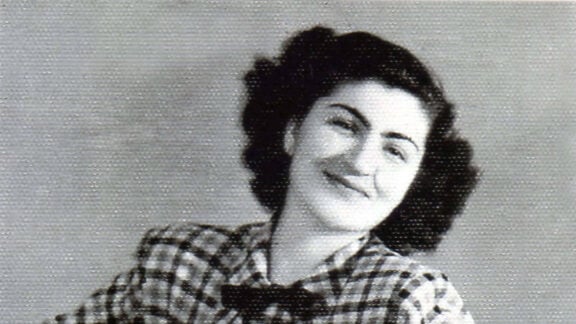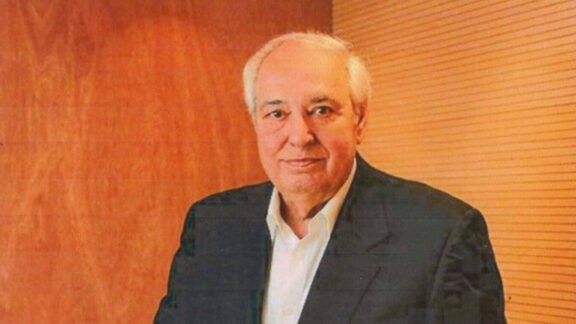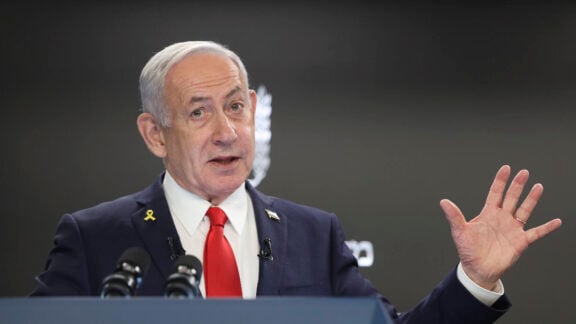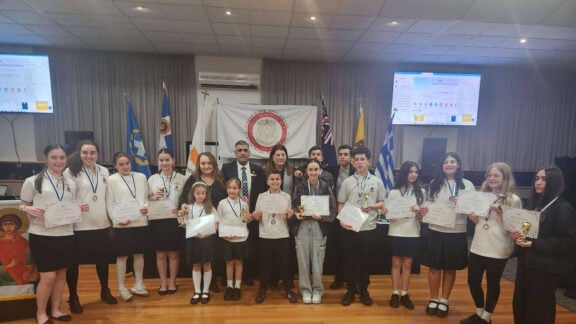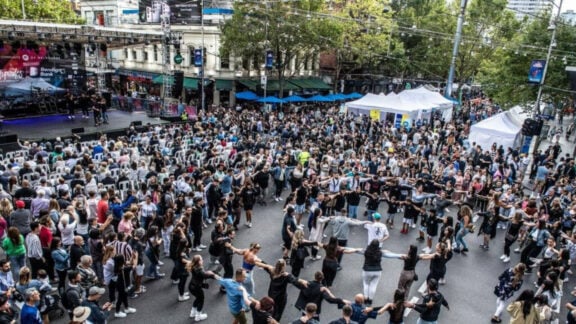In a series of Tweets, Victorian MP Steve Dimopoulos has stood up for Australian actress Rebel Wilson who was forced to publicly come out with her relationship with designer Ramona Agruma.
Wilson, who had not made a statement about the nature of her relationship with her partner until last week, posted a picture to her 11 million Instagram followers, announcing it.
Even though her public coming out was met with immense positivity, during Pride month, further revelations proved that her post did not happen willingly.
Following the post, Sydney Morning Herald‘s journalist Andrew Hornery published a piece revealing that he had approached Wilson’s representatives ahead of her post requesting comment regarding information on her relationship and that Wilson had “gazumped” him, making her own announcement ahead of the piece. Since then, the SMH‘s editor and journalist have apologised, taking down the piece.
However, Wilson, who was not yet ready to publicly share her love life but rushed it so that the announcement could still happen on her own terms and not through the media, tweeted that “it was a very hard situation but [I’m] trying to handle it with grace”.
“No one gets to tell us how and when we come out and if we ever do. These imbeciles thought the story was theirs. It’s your life, it’s your story. With you 100% Rebel Wilson. 💪🏼 🌈❤️,” Steve Dimopoulos posted on Twitter.

Speaking to Neos Kosmos Mr Dimopoulos expressed his concerns regarding people’s sovereignty over their sexual orientation being exposed by the media without them choosing to make the announcement. Mr Dimopoulos highlighted that such actions can harm someone’s mental health and destabilise their life even if they are in the public eye. The Greek Australian MP, is a staunch supporter of equality and an advocate for the LGBTIQA+ community among other groups.
Mr Dimopoulos didn’t stop at one tweet, continuing to elaborate on why such an action from SMH was inherently wrong, and essentially, not journalism.
Regardless of what someone does and how open they are about it in their personal life, The Human Rights Campaign defines outing someone as “exposing someone’s lesbian, gay, bisexual or transgender identity to others without their permission”.
The Herald’s editor Bevan Shields wrote an apology letter to Wilson on which he tweeted about: “To say that the Herald ‘outed’ Wilson is wrong. Like other mastheads do every day, we simply asked questions and as standard practice included a deadline for a response. I had made no decision about whether or what to publish, and the Herald’s decision about what to do would have been informed by any response Wilson supplied. Wilson made the decision to publicly disclose her new partner, who had been a feature of her social media accounts for months.”
Replying to Mr Shields, Mr Dimopoulos tweeted: “Please stop this. You do not have a right. You are not equal in this. This is not your story. You are not the aggrieved party. So apparently if Rebel’s partner was a man you would’ve asked the same question? Her partner is not a man and therefore this is a coming out story.
“How can you not see this? This is not a case of equal treatment here. So please don’t pretend it is and please don’t pretend you don’t understand. And you asked her if she wanted to comment and subject to that comment you would’ve decided what action to have taken with the story.”
His tweets kept getting liked and re-shared by Twitter users, human rights and equality organisations, including Greek Australians. Mr Dimopoulos argued with Mr Shields that offering someone to comment on a story about them that has been planned without their consent is not courtesy, it is pressure.
“How big of you,” Mr Dimopoulos, wrote. “This is not your story, this is not your business. You do not have the right to make that call. Can you not see how disgusting even writing that is? You asked her about her personal life and subject to her response, YOU would decide what to write? Why can’t she hold the pen on her own story? On such a personal and intimate story and crossing the threshold of coming out? How do you think you have equal rights to her story? People need to feel safe before they come out,” he continued, stressing the importance of giving people the opportunity to choose when and where and how they share their personal life stories.
“In asking her whether she wanted to comment, did you make her feel safe? Did you say that it is entirely your choice Rebel, if you do not want us to publish it we will not. Did you give her the option even though it’s not yours to give? Did you have a more fulsome conversation? Or were you just ticking the box before you published the story anyway or seeking more information to publish a story with more details?,” he asked the editor.
“All the power rested with you and you gave her very little and she took the little she had and you’re upset about that? Goodwill is a precious thing. This kind of ‘journalism’ risks it. If the Herald had its head outside its own bubble it would apologise unreservedly to Rebel and her partner. End of sentence. Full Stop.”

